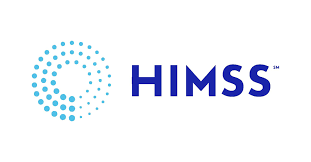Maternal health
Decreasing maternal mortality and overarching maternal child health issues through digital health solutions.
-
Initiatives
HIMSS prioritizes improving maternal health and reducing maternal health disparities using health tech. Given the high maternal mortality rates in the U.S., we work to influence public policy at all government levels to address this crisis. Health equity is crucial in policy discussions because African American and Alaskan Native/indigenous American women face higher pregnancy-related mortality. Digital health solutions, better maternal health reporting, data collection and expanded telehealth can be vital to improving patient outcomes.
Visit the Global Health Equity Week page and IHE’s Path to Production to learn more.-

-
Advocate for the Black Maternal Health Momnibus Act of 2021
H.R.959, also known as the Black Maternal Health Momnibus Act of 2021, would allow:
- Integrated telehealth models in maternity care services
- Grants to expand the use of technology-enabled collaborative learning and capacity models for pregnant and postpartum individuals
- Grants to promote equity in maternal health outcomes through digital tools
- Funding for data collection, surveillance, and research on maternal health outcomes during the COVID–19 public health emergency
-
Protect maternal health in your area
Write to your governors and state Medicaid director and urge them to leverage health tech to improve maternal health and reduce maternal mortality.
-

-
-
Federal and legislative actions
In June 2022, the White House released Blueprint for Addressing the Maternal Health Crisis, a whole-of-government approach to combatting maternal mortality and morbidity. This includes 50 commitments from more than a dozen federal agencies, aimed at combatting maternal mortality and morbidity, ending maternal health disparities and improving the overall experience for mothers across the country. HIMSS was proud to support the Blueprint.
These actions are centered around five key goals:
-
Increase access to and coverage of comprehensive, high-quality maternal and behavioral health services
-
Ensure those giving birth are heard and are decision makers in accountable systems of care
-
Advance data collection, standardization, harmonization, transparency and research
-
Expand and diversify the perinatal workforce
-
Strengthen economic and social supports for people before, during and after pregnancy
To support the implementation of the Administration’s Blueprint, the Centers for Medicare and Medicaid Services (CMS) released their Maternity Care Action Plan, taking a holistic and coordinated approach to improve outcomes and reduce inequities across maternal health.
On the Congressional front, provisions from two key HIMSS-endorsed bills were enacted as part of Consolidated Appropriations Act, 2022, the Rural Maternal and Obstetric Modernization of Services Act (Rural MOMS Act) H.R.769/S.1491 and the Maternal Health Quality Improvement Act, H.R.4387/S.1675. The FY22 omnibus bill also included nearly $1 in funding for maternal and child health programs, a 4% increase above the FY21 enacted level. Overall, the Momnibus bill included the following digital health provisions:- Directs various units within the U.S. Department of Health and Human Services to improve collection and research efforts related to rural and maternal obstetric care data
- Authorizes $3M for each of FY22-26 for HHS to award grants to establish rural obstetric networks for quality improvement and innovation.
- HRSA grants to identify, develop and disseminate best practices to improve maternal health care quality and outcomes
- Training for health care providers to improve prenatal, labor, birthing, and postpartum care for racial and ethnic minority populations, including with respect to preexisting perceptions and biases
- Funding for Telehealth Network and Telehealth Resource Centers Grant Programs, authorizing the Telehealth Network Grant Program at HRSA to include providers of prenatal, labor care, birthing, and postpartum care services
Black Maternal Health Momnibus Act of 2021
Additionally, there continues to be pressure to see the Black Maternal Health Momnibus Act of 2021 (H.R. 959/S. 346), known as the “Momnibus”, signed into law. The Momnibus is a comprehensive legislative package composed of 12 individual bills that address every dimension of this U.S. maternal health crisis and tackle long-standing health care disparities.
The legislation proposes to strengthen federal maternal health programs like the CDC's Surveillance for Emerging Threats to Mothers and Babies program and Enhancing Reviews and Surveillance to Eliminate Maternal Mortality (ERASE MM), which supports maternal mortality review committees and Pregnancy Risk Assessment Monitoring System (PRAMS). It would make investments in SDOH, CBO’s, the growth and diversification of the perinatal workforce, improvements in data collection and quality measures, digital tools, like telehealth, innovative payment models and address climate change-related risks for moms and their babies.-

-
On November 30, 2021, President Joe Biden signed the first standalone Momnibus bill, The Protecting Moms Who Served Act (P.L.117-69), — this bill supports comprehensive GAO study on maternal mortality and severe maternal morbidity among veterans, with a particular focus on racial and ethnic disparities in maternal health outcomes. Key digital health provisions include investing $15 million in maternity care coordination programs at VA facilities to:
- Ensure effective coordination between VA facilities and non-VA facilities in the delivery of maternity care and other healthcare services
- Facilitate access and referrals to resources in the community to address social determinants of health
- Identify mental and behavioral health risk factors in the prenatal and postpartum periods, and ensure that pregnant and postpartum veterans get the help and treatment they need
- Make recommendations for the improvement of maternal health data collection processes
-
-
State and community health actions
Recommended state policy actions to address the maternal mortality crisis
HIMSS, along with our partner REACH, hosted Developing a Digital Tech-Enabled Maternal Health Action Plan: A Roundtable for State Engagement, where participants discussed model practices and strategies that can be utilized by state and local health organizations in the battle to lower the U.S. maternal mortality rate.
Recommended state Momnibus legislation should:
- Enable access to digital self-monitoring tools for women via Medicaid programs at little to no out-of-pocket cost to the patient
- Strengthen and provide support for women's health, family planning, and reproductive health services by increasing and improving reimbursement for care starting with preconception through all phases of pregnancy and the first year postpartum, via screening, treatment, monitoring, support services and integrated telehealth models for maternity care services
- Provide funding to expand the use of technology-enabled collaborative learning and capacity models for pregnant and postpartum women
- Provide funding for electronic data collection, surveillance, and research on maternal health outcomes during the ongoing COVID–19 public health emergency
- Develop cross-sector data platforms or data lakes by collaborating with health information exchanges, and other community partners to inform collection and analysis by state maternal mortality review boards
Prioritizing maternal health equity and data privacy
HIMSS recommends that at the core of any privacy legislation, individuals must be in a position of greater empowerment to direct their consumer preferences without compromising the privacy and security of that data. This is especially true for maternal health, yet under any scenario, the fundamental principles are that the individual is involved, engaged, and at the center of any decision-making involving sharing their data.
-
The key to improving Maternal Health
With Uma Ahluwalia Listen to Uma Ahluwalia, MSW, MHA, Managing Principal, HMA, and former director of the Montgomery County, Maryland Department of Health and Human Services discuss why state and local governments are key to improving maternal health.
Listen now -
The importance of "equitable interoperability"
With Hannah K. Galvin Learn from Hannah K. Galvin, MD, FAAP, FAMIA, Chief Medical Information Officer, Cambridge Health Alliance to learn about the importance of “Equitable Interoperability” as it relates to maternal health privacy, security policies and standards.
Watch now
-
Resources
Featured Resources
-
September 5, 2024
How a MICU Team Made a Difference When It Mattered Most
-
September 5, 2024
Leveraging Health Information & Technology to Address the Maternal Mortality Crisis
-
September 5, 2024
Infant Mortality Awareness: Innovating for Improved Outcomes
-
September 5, 2024
Accelerating Maternal Health Research
Events
- categorySelect…
- regionSelect…
- typeSelect…

HIMSS Event Test 1
March 11 - 15, 2025
This is a test HIMSS event

HIMSS Event Test 2
March 8, 2025
This is a test HIMSS event
HIMSS25 - European Health Conference & Exhibition
June 10 - 12, 2025
Get ready for knowledge-sharing, all the latest innovations, and in-depth demos with Europe's most influential healthcare community.

Healthcare Cybersecurity Forum Test
October 31 - November 1, 2024
The HIMSS 2024 Healthcare Cybersecurity Forum will explore how the industry is fortifying its defenses today and preparing future-ready strategies for tomorrow. Healthcare cybersecurity professionals must remain focused on safeguarding patients, defending against attackers, and delivering business value while adapting to expanding complications and growing threats. You’re challenged by vulnerabilities inherent in new technologies; talent shortages; and inconsistent governance practices for those who interact with your digital health platforms.
-
Legislative Action Center
Make your voice heard on critical health information and technology legislation.









